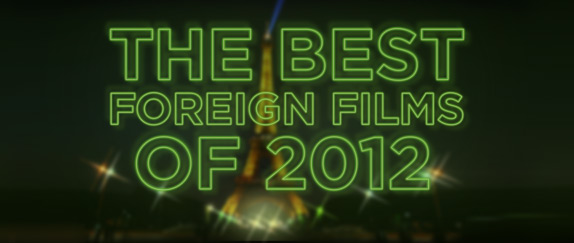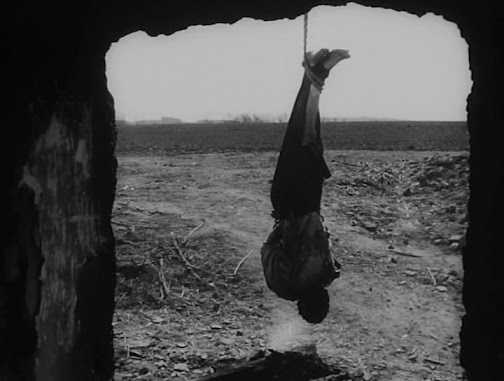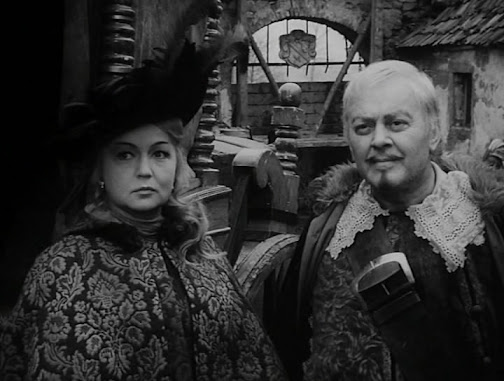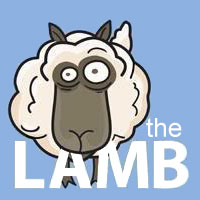Honor and Glory • Cest a sláva (1968)

Genre: Historical Drama
Director: Hynek Bocan
Starring: Rudolf Hrusínský, Karel Höger, Blanka Bohdanová, Josef Kemr, Iva Janzurová
Language: Czech, German
Duration: 87 min.
Summary:
At the close of the Thirty Years' War, an impoverished Bohemian nobleman contemplates rising up in revolt against the ruling Hapsburg Empire.
Honor and Glory is a film directed by Hynek Bocan, adapted from a novel of the same name written by Karel Michal. It premiered at the 1969 Venice International Film Festival, but was immediately banned in Czechoslovakia and wasn't seen until it was finally aired on television in 1991.
Some knowledge of Central European history is required to understand the story in this remarkable film. The date at the start of action is 1648, near the end of the Thirty Years' War. A conflict involving most of the European powers, which began as a failed revolt against the ruling Catholics by the Protestant led Bohemians (Czechs). The result was a devastated country where a great majority of the nobles were either executed or sent into exile. While the rest were allowed to remain if they agreed to immediately convert to Catholicism.
The film is centered on one of these surviving noblemen, Václav Rynda (Rudolf Hrusínský), once a great lord, but now ruler of a tiny and run down tract of land. Where he lives in a state of constant poverty, with no family, and only a handful of remaining peasant followers that do his bidding.
In some ways, it is noticeably similar to Frantisek Vlácil's great epic Marketa Lazarová. It shares the unique unglamorized take on history: with a graphic opening containing images of hanging corpses, burning crosses, and other bleak imagery; portraying life in those times in all its raw ugliness, with its unwashed peasants dressed in scraps, laboring in a run down stronghold with rotting walls falling apart from years of neglect; all accompanied by an incredible soundtrack (it's almost worth seeing the film for the music alone) of folk songs by composer Zdenek Liska.
Bocan, though, had a far smaller budget to work with here. So it has none of the grand scale or scope, no elaborate cinematography, and only a few, mostly interior, locations are used. It also has a far more traditional and straightforward narrative, using only still shots, and focusing heavily on character and dialog, unlike Vlácil's avant-garde and symbol laden work. However, he makes the most of it, managing to create a convincing atmosphere and a realistic setting.
Still, it's Hrusínský's stellar performance that carries Honor and Glory. Playing a man, who in the beginning, appears to have long forgotten the past, and is settled into his simple life of peace and poverty. After an unexpected visit from a noble couple back from abroad, old wounds are reopened, reigniting a fire within; and he slowly begins to question and struggle with what has become of his life and of his people. The way he expresses Rynda's growing internal conflict is absolutely captivating. Going from a defeated man, resigned to a miserable life of just trying to survive, to a glimmer of the proud aristocrat he once was, willing to die to restore his former glory.
All in all, this is a brilliant naturalistic historical drama that has more in common with the Czech New Wave than it lets on. There is an undeniable parallel between the historic events depicted in the film and the actual political happenings in Czechoslovakia when it was made. So much that the Soviet censors immediately banned it from being screened at home, and prevented the director from working for several years after. Fortunately for us, both eventually resurfaced.
Some knowledge of Central European history is required to understand the story in this remarkable film. The date at the start of action is 1648, near the end of the Thirty Years' War. A conflict involving most of the European powers, which began as a failed revolt against the ruling Catholics by the Protestant led Bohemians (Czechs). The result was a devastated country where a great majority of the nobles were either executed or sent into exile. While the rest were allowed to remain if they agreed to immediately convert to Catholicism.
The film is centered on one of these surviving noblemen, Václav Rynda (Rudolf Hrusínský), once a great lord, but now ruler of a tiny and run down tract of land. Where he lives in a state of constant poverty, with no family, and only a handful of remaining peasant followers that do his bidding.
In some ways, it is noticeably similar to Frantisek Vlácil's great epic Marketa Lazarová. It shares the unique unglamorized take on history: with a graphic opening containing images of hanging corpses, burning crosses, and other bleak imagery; portraying life in those times in all its raw ugliness, with its unwashed peasants dressed in scraps, laboring in a run down stronghold with rotting walls falling apart from years of neglect; all accompanied by an incredible soundtrack (it's almost worth seeing the film for the music alone) of folk songs by composer Zdenek Liska.
Bocan, though, had a far smaller budget to work with here. So it has none of the grand scale or scope, no elaborate cinematography, and only a few, mostly interior, locations are used. It also has a far more traditional and straightforward narrative, using only still shots, and focusing heavily on character and dialog, unlike Vlácil's avant-garde and symbol laden work. However, he makes the most of it, managing to create a convincing atmosphere and a realistic setting.
Still, it's Hrusínský's stellar performance that carries Honor and Glory. Playing a man, who in the beginning, appears to have long forgotten the past, and is settled into his simple life of peace and poverty. After an unexpected visit from a noble couple back from abroad, old wounds are reopened, reigniting a fire within; and he slowly begins to question and struggle with what has become of his life and of his people. The way he expresses Rynda's growing internal conflict is absolutely captivating. Going from a defeated man, resigned to a miserable life of just trying to survive, to a glimmer of the proud aristocrat he once was, willing to die to restore his former glory.
All in all, this is a brilliant naturalistic historical drama that has more in common with the Czech New Wave than it lets on. There is an undeniable parallel between the historic events depicted in the film and the actual political happenings in Czechoslovakia when it was made. So much that the Soviet censors immediately banned it from being screened at home, and prevented the director from working for several years after. Fortunately for us, both eventually resurfaced.
— Bonjour Tristesse






























4 comments:
As you know I LOVED Marketa Lazarová and I can see the similarities here in the stills you've chosen. I love this Czech contribution to the world stage so much. Really, there is nothing like these films. They are completely different and strikingly well made. I haven't seen this, but its going on my list.
Great review - always makes me want more! ML was made the year before I noticed. Do you know if the directors knew each other at all? Was this inspired by ML?
Yeah I'm not sure if Vlacil and Bocan had any direct links, but I'm certain that this was influenced by ML. Mostly in the naturalism, but also the music. I get excited every time I see the name Zdenek Liska in the opening credits.
I'm not sure if I'll find this difficult. I'm not terribly familiar with the history I'm gonna need, but it seems like it's good enough to do a quick search and watch anyway. I'll consider it.
I think my intro paragraph up there would be enough to get by. It's just that the film itself doesn't provide any explanation.
Post a Comment